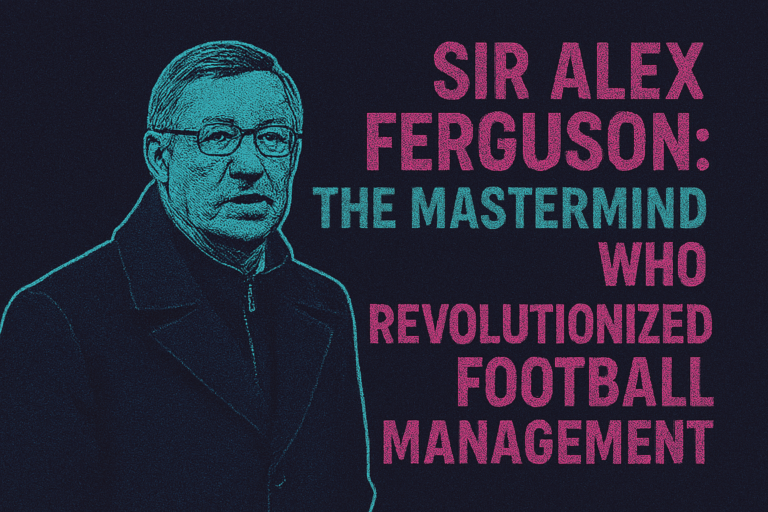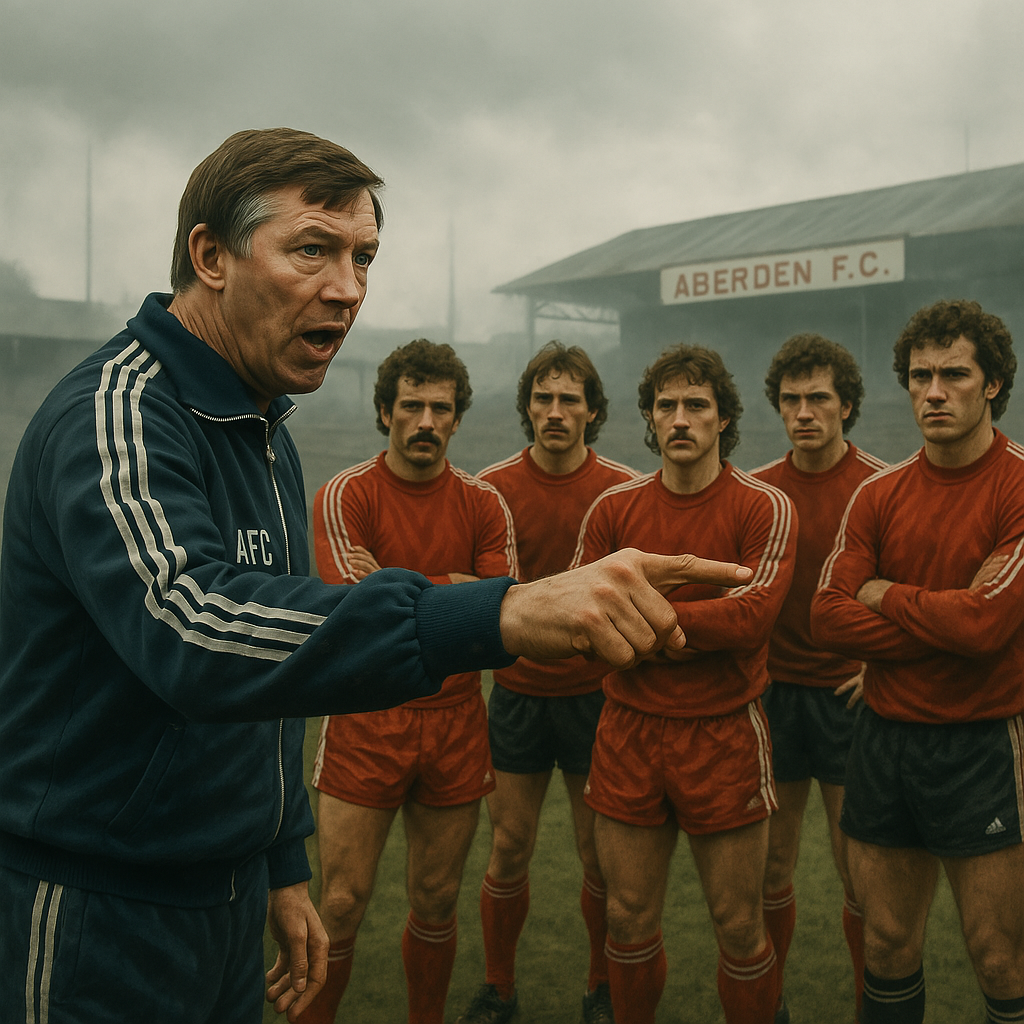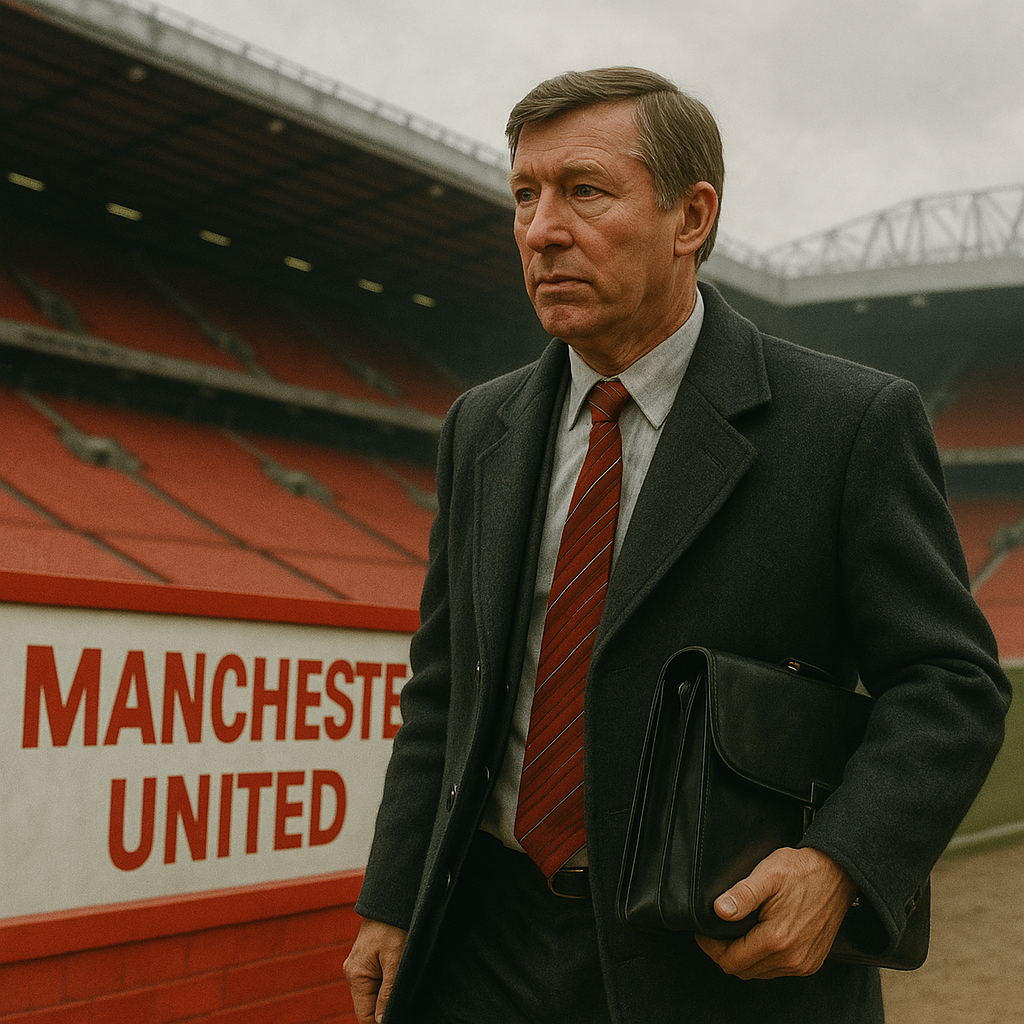
Sir Alex Ferguson: The Mastermind Who Revolutionized Football Management
In the world of football, few names evoke as much reverence and admiration as Sir Alex Ferguson. Known for his unrivaled ability to inspire, adapt, and dominate, Ferguson’s legendary career has become the benchmark for football management success. At escored.com, where passion for the game meets statistical insight and predictive excellence, we celebrate the story of the man who transformed not only Manchester United but also the very fabric of football leadership.
Early Years and the Birth of a Winning Mindset

Before Ferguson became synonymous with glory at Manchester United, he was forging his reputation in the challenging environment of Scottish football. His first taste of managerial responsibility came with a stint at Aberdeen—a club that had long been regarded as underdogs in the fiercely competitive Scottish league. It was here that Ferguson began to develop his distinctive approach to team building and leadership.
Arriving at Aberdeen with little managerial experience, Ferguson was determined to create a culture where winning was not just a hope, but an expectation. Despite early setbacks, he learned quickly that a winning mentality starts from within. By instilling a belief that every player must think and act like a champion, Ferguson transformed Aberdeen into a formidable force. His methods were not merely about tactical innovation but also about nurturing resilience and the mental strength needed to overcome adversity.
The Road to Manchester United: A Bold New Challenge

In 1986, a pivotal moment arrived when Manchester United, a club steeped in history yet starved for recent success, turned to the promising Scottish manager. At that time, United had not seen championship glory for nearly two decades. Ferguson accepted the challenge with characteristic determination, knowing that the club’s potential could be unlocked with the right blend of discipline, innovation, and heartfelt support.
However, the journey was far from smooth. His early years at United were marked by a series of frustrating seasons without any major trophies. Critics questioned his methods, and some even called for his dismissal. Yet Ferguson was not one to be easily deterred. Instead of capitulating to the pressures of expectation, he used the challenges as learning experiences, cementing his belief that defeat, when properly analyzed, is the best teacher.
A Unique Approach: Balancing Discipline with Empathy
What set Sir Alex Ferguson apart from his contemporaries was his deep understanding of human psychology. While many managers relied solely on tactical acumen and strict discipline, Ferguson demonstrated that the success of a team is built on more than just rigid control. He was both a stern taskmaster and a caring mentor—a combination that allowed him to connect with his players on a personal level.
Players often recalled how Ferguson managed to blend harsh criticism with genuine concern for their personal growth. Whether in the dressing room or after a tough defeat, his door was always open. This unique relationship with his squad meant that even when disciplinary measures were necessary, they were seen as part of a larger, supportive system aimed at nurturing talent and resilience. His approach helped create an environment where players felt valued and driven to perform at their best, both on and off the pitch.
Tactical Evolution and the Mentality of Winners

During his tenure, Ferguson constantly adapted his tactical approach to stay ahead of emerging football trends. While the modern game began to favor meticulous tactical planning, Ferguson maintained that the mental strength of his players was the cornerstone of any successful strategy. He believed that a winning mentality could turn the tide even in the face of tactical deficiencies.
Ferguson’s teams were renowned for their relentless pursuit of victory. His philosophy was simple: “If you don’t think like a winner, you have no place in this game.” This mantra was instilled in every player who donned the Manchester United jersey. It was this relentless drive that saw the club clinch two Premier League titles in succession, setting the stage for what would become an era of unparalleled dominance.
His emphasis on mental toughness wasn’t just rhetoric. The psychological edge was evident in crucial matches where Manchester United would come from behind or overturn seemingly insurmountable deficits. This unwavering belief in the power of a positive mindset was key to some of the most memorable comebacks in the history of the sport.
The Transformative Impact of Key Signings
Another hallmark of Ferguson’s tenure was his uncanny ability to identify and nurture talent. One of his most famous signings, Eric Cantona, exemplified how a player's unique qualities could be harnessed to fit the team’s broader philosophy. Cantona’s flair and unpredictable brilliance were not without their controversies, but Ferguson’s management style allowed him to flourish under pressure. Even when faced with off-field incidents, such as the infamous altercation that led to Cantona's suspension, Ferguson’s measured response underscored his belief in second chances and the importance of individual redemption.
Moreover, Ferguson was never content to rest on his laurels. When his teams achieved success, he continued to push for improvement. This relentless pursuit of excellence was evident in his ability to seamlessly integrate young talents into the first team—most notably, the class of '92. This group of homegrown stars not only brought fresh energy to the squad but also embodied the spirit of innovation and persistence that Ferguson championed.
Overcoming Internal and External Challenges
Throughout his long career, Ferguson had to navigate both internal conflicts and external pressures. Incidents such as disputes with senior players or public criticisms in the media were not uncommon. One notable episode involved a confrontation with captain Roy Keane, which, despite its intensity, ultimately underscored Ferguson’s commitment to maintaining team discipline. He understood that sometimes tough decisions were necessary to preserve the overall harmony and competitiveness of the squad.
These challenges were balanced by moments of extraordinary success. Under his guidance, Manchester United not only won numerous Premier League titles but also made historic European campaigns, including memorable Champions League triumphs. His ability to steer his team through turbulent times, adapt to evolving circumstances, and consistently deliver results is a testament to his unparalleled managerial acumen.
Legacy: More Than Just Trophies
By the time Sir Alex Ferguson retired in 2013, his trophy cabinet boasted an astonishing array of honours—38 major trophies over 26 years, including 13 Premier League titles and 2 Champions League crowns. Yet, his legacy extends far beyond the physical accolades. Ferguson transformed the club into a global brand and a symbol of perseverance, innovation, and excellence.
His influence on the modern game is immeasurable. The emphasis on mental strength, the integration of youth into top-level football, and the holistic approach to player management have all become integral parts of contemporary football philosophy. For many, Ferguson’s career serves as a blueprint for what it means to be a successful manager, combining tactical intelligence with genuine care for the human side of sport.
Impact on Modern Football and Future Generations
Even after his retirement, Sir Alex Ferguson’s methods and philosophies continue to influence the next generation of managers. His success has inspired countless coaches around the world to prioritize not only tactical brilliance but also the cultivation of a winning mentality. In today’s football landscape, where statistics and advanced analytics play a significant role in decision-making, Ferguson’s legacy is a reminder that the human element—character, resilience, and leadership—remains at the heart of the beautiful game.
At escored.com, we recognize that football is as much about passion and legacy as it is about numbers and predictions. Ferguson’s career, with its highs and lows, offers invaluable lessons for those looking to understand the dynamics of success in sports. His story is a vivid illustration of how belief in oneself, strategic innovation, and unwavering commitment can reshape a club and redefine an entire sport.
Conclusion: The Enduring Relevance of Sir Alex Ferguson’s Philosophy
Sir Alex Ferguson’s journey from a young, determined manager at Aberdeen to a football icon at Manchester United is an inspiring tale of perseverance, adaptation, and leadership. His emphasis on the mental strength of players, his innovative approach to management, and his ability to navigate both internal and external challenges have left an indelible mark on football history.
For fans and analysts at escored.com, Ferguson’s career is not merely a record of trophies and victories; it is a testament to the power of a winning mentality and the impact of thoughtful leadership. As we continue to analyze football predictions and delve into the statistical trends of the game, we remain inspired by the enduring legacy of the greatest manager in football history—a man who made the impossible dream possible.
By blending tactical innovation with genuine care for his players, Sir Alex Ferguson set a new standard in football management. His story teaches us that true greatness is achieved not just through skill and strategy, but through resilience, passion, and the relentless pursuit of excellence. Whether you’re a die-hard Manchester United supporter or a student of football history, Ferguson’s legacy offers timeless lessons that continue to shape the future of the game.





